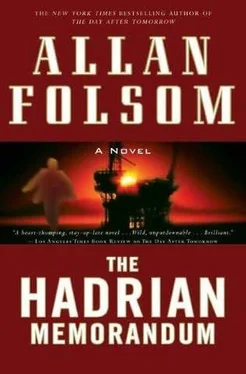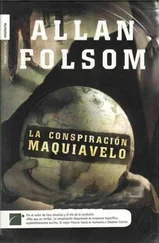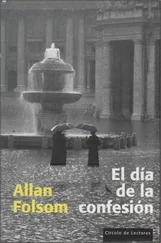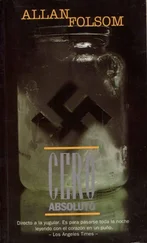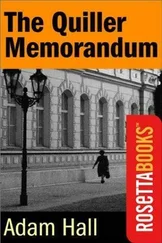Marten exhaled.
One checkpoint down. How many more to go?
9:32 A.M.
9:40 A.M.
Hauptkommissar Franck sat alone in a dark gray Audi parked along Lichtensteinallee in the Tiergarten, Berlin’s sprawling urban park. He stared blankly out at the drizzle and listened to the crackle of radio transmissions from his people in the field, most particularly the force he’d sent out in the last hour following his conversation with the Monbijou’s waiter. His description of the man and woman who had gotten off the tour boat at the Lustgarten dock, coupled with the reference he’d made to the Dallas Cowboys baseball cap the man had been wearing, all but matched the account the shamed motorcycle officers had given him in their report.
As a result he’d made a computerized grid of the surrounding area, then set up roadblocks at intersections and sent two hundred plainclothes and uniformed officers into it in a block-by-block search. Afterward he’d climbed into his car and driven here, then parked and waited.
Now he lifted a small container of orange juice, took a sip, and put it back in the car’s cup holder. The gray sky, the drizzle. He should be home sleeping, especially after the long night. Under other circumstances the suspects would already be in custody. Meaning he could get up late, have a cup of coffee with his wife, then go to the gym before meeting with the media. But these weren’t other circumstances.
“ We need to talk .” He still heard the throaty female voice he’d heard when he’d answered his cell phone in the early-morning hours.
“When?”
“ Twenty minutes .”
“Same place?”
“Yes.”
The place had been a darkened café just off Taubenstrasse near Gendarmenmarkt Square. The time, 3:30 A.M. It had been just the two of them, half seen in a chiaroscuro of near black-and-white created by the spill from a streetlamp outside. Elsa was older, as he was, but still exhilaratingly handsome, intellectually and sexually. The sexual activity between them had stopped years before, and he knew better than to try to relight it. Especially now and under the circumstances.
“This Nicholas Marten,” she’d said as she had walked behind the bar to pour them each a small cognac and then come around it to sit on a stool next to him.
“What about him?”
“Allegedly there are a number of photographs pertaining to the rebellion in Equatorial Guinea. They are why Marten came to Berlin, to collect them.”
“What are they of?”
“All we’ve been told is that they are strategically important. Read into it what you will.”
“By ‘allegedly’ you mean ‘if they exist.’”
“We are assuming they do.”
“What do you want from me?”
“Follow Marten. Find the pictures-the camera’s digital memory card may be with them. If it is, retrieve both. Afterward eliminate Marten and anyone with him.”
“To follow him, Elsa, I have to find him without his knowing. Something quite difficult in itself but complicated even more by the elevated profile of the case and the number of police personnel involved.”
“It can be done, Emil. We succeeded before in the old days and under far more difficult circumstances.”
“We didn’t have the media curse we have now.”
She hadn’t replied, just stared at him in silence. He’d been given an order. Excuses didn’t exist. Like the old days.
He remembered picking up his glass and taking a sip of the cognac, then looking at her directly. “Who is he?”
“Marten?”
“Yes.”
“You mean other than a landscape architect?”
He’d nodded.
“As yet, we don’t know.”
“Before he came to Berlin”-there was no point in keeping it a secret from her; she might have known anyway-“he had been in Equatorial Guinea. So had Anne Tidrow, the woman we think is with him.”
“Board member,” she’d said. “Striker Oil Company. Houston, Texas. They have a large oil operation in Equatorial Guinea.”
“So you do know.”
“Tell me the rest, Emil.”
“While they were there a priest was murdered. He was the brother of Theo Haas.”
“Did either of them have contact with the priest?”
“I don’t know. Any more than I know why Marten-”
“Murdered Theo Haas?”
“Yes.”
“Did he murder him?”
“I’m not sure.”
“Still, it is reason enough for you to kill him after you recover the photographs.”
“Yes, if your information is correct and he knows where they are.”
She’d looked at him with a steely silence, a gesture of condescension she’d employed for as long as he’d known her. Then she’d picked up her glass, drained it.
“I will give you further instructions as I have them,” she’d said, then set the glass on the bar and looked at him once more-either remembering the old days or trying to judge whether or not she could still trust him, he didn’t know which. “Please lock the door when you leave,” she’d said finally, then stood up and walked out.
Her instructions had come two hours later, waking him shortly after he’d fallen asleep on his office couch. He was to meet a man in the Tiergarten on the southern edge of Neuer Lake at ten o’clock that same morning. He would be a Russian in his midforties, bearded and a little overweight. His name was Kovalenko.
9:48 A.M.
Marten felt the van lean to the right, then accelerate and even out. After that there was the quiet hum of the tires over the roadway and little else. If Anne and Erlanger were talking, he couldn’t hear them.
Who Erlanger was or might be, Marten had no idea. His best guess was that he was one of Anne’s German operatives from her CIA days in Berlin. It made him wonder when that had been. She was forty-two now. So how old would she have been when she left the agency to care for her father? Twenty-nine, thirty, maybe a little more. So for ten or more years at least she had stayed in contact with these people, not just Erlanger, but the woman whose apartment they had stayed in, and the person or persons who had tailed him from the airport and then told her where he was. Of them all it was the woman who’d provided the apartment and now Erlanger who were most on the spot. They were aiding fugitives and if caught risked serious prison time. On the other hand, if they had been operatives, or maybe still were, this was the kind of thing they did all the time, where connections were everything and loyalty and silence ran deep.
By Marten’s estimate they had been traveling for nearly thirty minutes at good speed and without being stopped again, which meant they were probably on a major highway and headed for some town or city that lay outside of Berlin proper and its heavy blanket of police. Suddenly he began to wonder just where Erlanger was taking them and what would happen when they got there. Getting out of Berlin was one thing, getting out of Germany quite another, because there would be intense law enforcement presence at the airports, metro, train, and bus stations. Seemingly the only way out would be for Erlanger to drive them across the border himself. Maybe that was his intention. Maybe Anne had worked that part out, too, but it was unlikely; since she still had no idea where the photographs were, it would be impossible for her to give Erlanger or anyone else a destination. Telling her where they were-“ if ” they were-was something he’d so far managed to avoid but was a subject he knew would come up as soon they reached their destination.
He’d known from the moment they’d left the Adlon that at some point he’d have to tell her something, especially when he realized that she might actually be able to get him out from under the noses of the police, but just how much to reveal was tricky. Tell her too much and she wouldn’t need him, might even turn him over to Franck just to get him out of the way. Tell her nothing and he would get no farther than wherever Erlanger was taking them now.
Читать дальше
